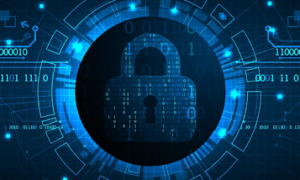In an era where technology continues to evolve at lightning speed, it’s easy to assume that some security measures are becoming obsolete. With biometric scans, two-factor authentication, and sophisticated cybersecurity tools, many people wonder if passwords still carry the same importance they once did. The truth is, despite the advances, strong passwords remain one of the most critical barriers protecting your sensitive data from cybercriminals.
For both individuals and businesses, the password is often the first line of defence. Whether it’s guarding your personal banking information or protecting company databases, the strength of a password can be the deciding factor in preventing a costly breach. And while advanced data security services provide powerful layers of protection, they work best when combined with strong password practices at the user level.
This blog explores why strong passwords still matter in 2025, common mistakes to avoid, and how you can create one that works without making your life unnecessarily complicated.
The Ongoing Importance of Strong Passwords
Cybercriminals are resourceful, and their methods for breaching accounts grow more sophisticated every year – however, weak passwords remain one of the easiest ways for them to gain access. In fact, global studies consistently show that poor password practices are responsible for a large proportion of data breaches.
Strong passwords matter because they:
- Protect against brute force attacks: Hackers use automated systems to try millions of password combinations. A short or simple password can be cracked in seconds.
- Safeguard sensitive information: Whether it’s personal health records, financial data, or intellectual property, a strong password helps keep private information private.
- Prevent ripple effects: Many people reuse the same password across multiple platforms. If one account is compromised, attackers can use those credentials to access others.
- Support compliance requirements: Many industries have regulatory obligations around information security, and strong password policies play a role in meeting these standards.
Common Password Mistakes That Put You at Risk
Despite years of warnings, some common mistakes still leave users exposed:
- Using personal information: Birthdays, pet names, or favourite sports teams are easy to guess or find through social media.
- Simple sequences: Passwords like “123456”, “password”, or “qwerty” remain astonishingly common.
- Reusing passwords: Once one system is breached, reused passwords open doors to multiple accounts.
- Short length: Passwords under eight characters are highly vulnerable to brute force attacks.
- Failure to update: Sticking with the same password for years increases the risk of eventual compromise.
How to Create a Strong Password That Actually Works
The challenge with strong passwords is balancing security with usability. If a password is too complex to remember, people are more likely to write it down or use insecure shortcuts. The key is finding the right strategy that provides strength without being unmanageable.
Here are practical steps for creating a strong, effective password:
Make It Long
Length is one of the strongest determinants of password security. Aim for at least 12–16 characters. Longer passwords exponentially increase the time it takes for attackers to crack them.
Use a Mix of Characters
Include a combination of:
- Uppercase and lowercase letters
- Numbers
- Special characters such as @, #, $, %
This variety makes it harder for automated tools to predict.
Avoid Dictionary Words
Single dictionary words or common phrases are easy targets for dictionary attacks. Instead, try creating passphrases that string together random words or use deliberate misspellings.
For example: RedKangaroo$River82! is far more effective than kangaroo123.
Think in Passphrases
Passphrases are both strong and memorable. Use a string of unrelated words, add some numbers and symbols, and you have a secure but user-friendly password. Example: Sunset$Tractor98Blue.
Don’t Reuse Across Accounts
Each important account (banking, email, work systems) should have its own unique password. That way, even if one is compromised, others remain secure.
Use a Password Manager
If remembering multiple complex passwords feels overwhelming, a reputable password manager can help. These tools generate and store strong, unique passwords for every account, locked behind one master password.
Update Regularly
Change passwords periodically, especially if you suspect an account may have been compromised. Even the strongest password loses effectiveness if it remains unchanged for years.
The Role of Passwords in a Layered Security Strategy
It’s worth noting that passwords are not the sole solution to cyber threats; they’re a single layer within a broader security strategy. Businesses, in particular, should adopt a defence-in-depth approach that includes:
- Two-factor authentication (2FA): Adds a second verification step beyond just the password.
- Endpoint security: Protects devices from malware and unauthorised access.
- Regular monitoring: Detects unusual login activity or access attempts.
- Professional data security services: Ensures compliance, resilience, and tailored protection strategies.
When combined, these layers significantly reduce the risk of breaches. However, the foundation still begins with something as simple as a well-constructed password.
Passwords and the Human Factor
Technology can only go so far; human behaviour remains the biggest vulnerability. Hackers often exploit human error, from clicking on phishing links to falling for social engineering tactics. Weak passwords are part of this same human challenge.
Training staff on good password hygiene, alongside broader cybersecurity awareness, is essential. It only takes one compromised password in a workplace setting to open the door to a much larger breach.
For individuals, staying mindful of password practices can prevent identity theft, financial fraud, and significant personal stress.
Looking Ahead: Are Passwords Here to Stay?
With advancements like biometrics and passwordless authentication systems, many people wonder if passwords are on their way out. While the future may eventually reduce reliance on passwords, the reality is that they remain deeply entrenched in the digital ecosystem.
Most systems, platforms, and applications still require passwords as their primary authentication method. And even when alternatives exist, passwords often serve as a backup option. This makes strong password habits just as important today as they were a decade ago—if not more.
Stay safe online
Strong passwords are not outdated; they are the foundation of digital security. While technology evolves and new authentication methods gain traction, the humble password continues to play a vital role in protecting sensitive data. By avoiding common mistakes, adopting proven strategies for building strong passwords, and combining them with broader security measures, both individuals and businesses can significantly reduce their risk of cyberattacks.
The bottom line: don’t underestimate the power of a strong password. It may seem simple, but it’s one of the most effective tools available in safeguarding your digital life.



































